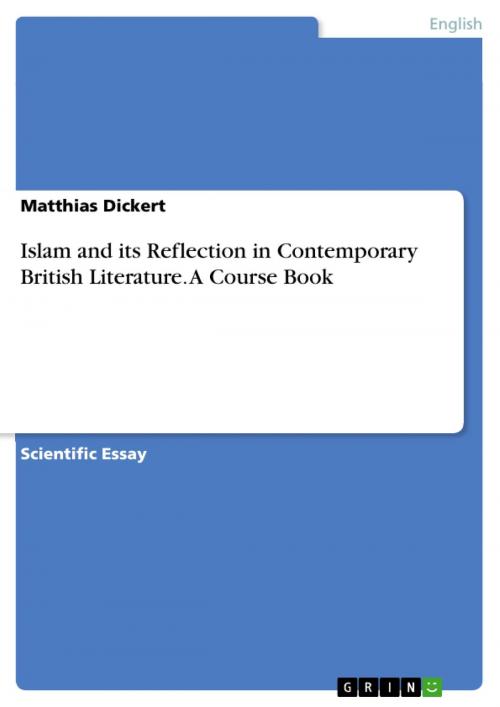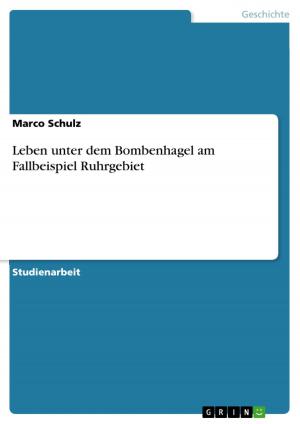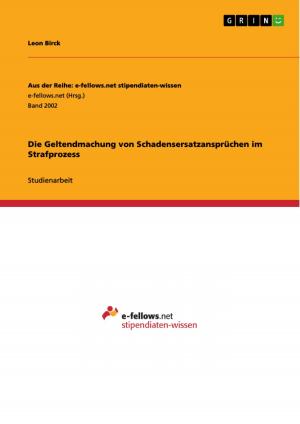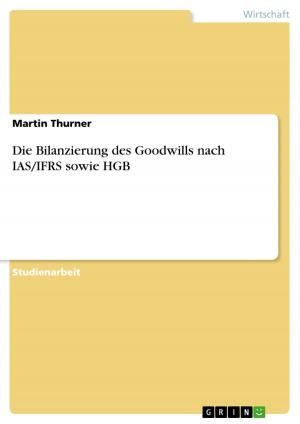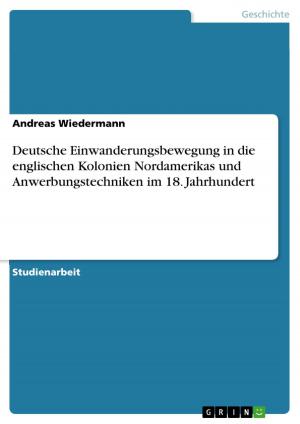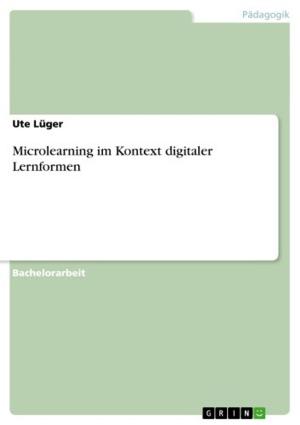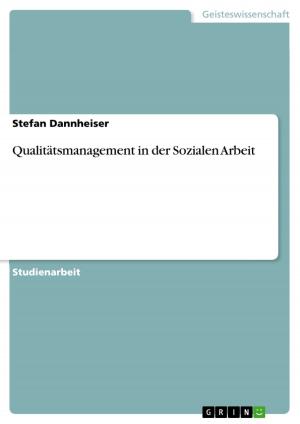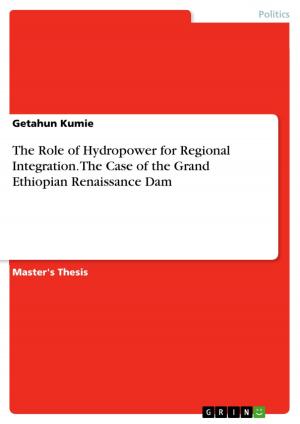Islam and its Reflection in Contemporary British Literature. A Course Book
Fiction & Literature, Literary Theory & Criticism, British| Author: | Matthias Dickert | ISBN: | 9783656953579 |
| Publisher: | GRIN Verlag | Publication: | May 4, 2015 |
| Imprint: | GRIN Verlag | Language: | English |
| Author: | Matthias Dickert |
| ISBN: | 9783656953579 |
| Publisher: | GRIN Verlag |
| Publication: | May 4, 2015 |
| Imprint: | GRIN Verlag |
| Language: | English |
Scientific Essay from the year 2015 in the subject English Language and Literature Studies - Literature, Comenius University in Bratislava, language: English, abstract: The key position of Muslim writers in the contemporary English speaking novel is undoubted. Muslim writing itself is a logical consequence of postcolonial writing which has been marked by Carribean, African and Muslim authors at the same time. Whereas Carribean writers focus on concepts such as nation or nationalism,.Black writers seem to reflect a notion which is widely understood by 'cultural memory'. Muslim writing on its behalf centers on the catchphrase 'identity' since it considers Islam as a perfect identity marker for the novel. This (Muslim) 'otherness' is rooted in a religion which has for too long been looked upon from Said's concept of 'otherness' which is based on Foucault's notion of 'power and knowledge'. lt is here where the dualistic concept of East and West is constructed which sees both sides as antagonistic spheres. lt also in this background where author and reader finally have to discuss this Muslim 'otherness' apart from their minds. lt is therefore this (religious) 'otherness' based on religion which makes it extremely difficult for Western readers to fully understand Muslim characters. This is due to the fact that Islam is not only a religious idea of the world, it is also a total concept of Muslim existence since it covers all spheres of Muslim existence, the religious, the social, the legal and the political. The intention of this essay therefore is to give a short survey of Muslim writing over the last 30 years. The aim is to shortly reflect the incorporation of Islam into the novel , a development which has been marked by Nünning/Nünning with the term 'cross-fertilization' thus refering to the close link between narration and religion. The focus of the chosen novels hoowever lies on 'identity', a term marked by the concept of modern man being a migrant or a nomad, thus also reflecting the consequences of migration waves and the phenomenon of globalization. The paper starts with a sociological and religious background before it shortly deals with 'The Satanic Verses', 'The Black Album', 'Brick Lane', 'The Reluctant Fundamentalist' and 'Guantanamo Boy'. The aim ist o give a short survey oft he question of Muslim identity during the last 30 years.
Matthias Dickert, geb. 1955, ist von Beruf Gymnasiallehrer (Englisch, Sport, katholische Religion). Studium an der Philipps Universität/Marburg und Durham University (GB). Forschungsschwerpunkt: Migrationssoziologie/ Islamische Autorinnen und Autoren im gegenwärtigen englischen Roman. Zahlreiche Veröffentlichungen (z.B. Blickpunkt der Forschung, Zeitschrift für Interdisziplinäre ökonomische Forschung, GRIN Verlag); Vorträge an europäischen Hochschulen. Doktorarbeit über das Thema Islam, Islamic Fundamentalism and the Question of Identity in Muslim Writing.
Scientific Essay from the year 2015 in the subject English Language and Literature Studies - Literature, Comenius University in Bratislava, language: English, abstract: The key position of Muslim writers in the contemporary English speaking novel is undoubted. Muslim writing itself is a logical consequence of postcolonial writing which has been marked by Carribean, African and Muslim authors at the same time. Whereas Carribean writers focus on concepts such as nation or nationalism,.Black writers seem to reflect a notion which is widely understood by 'cultural memory'. Muslim writing on its behalf centers on the catchphrase 'identity' since it considers Islam as a perfect identity marker for the novel. This (Muslim) 'otherness' is rooted in a religion which has for too long been looked upon from Said's concept of 'otherness' which is based on Foucault's notion of 'power and knowledge'. lt is here where the dualistic concept of East and West is constructed which sees both sides as antagonistic spheres. lt also in this background where author and reader finally have to discuss this Muslim 'otherness' apart from their minds. lt is therefore this (religious) 'otherness' based on religion which makes it extremely difficult for Western readers to fully understand Muslim characters. This is due to the fact that Islam is not only a religious idea of the world, it is also a total concept of Muslim existence since it covers all spheres of Muslim existence, the religious, the social, the legal and the political. The intention of this essay therefore is to give a short survey of Muslim writing over the last 30 years. The aim is to shortly reflect the incorporation of Islam into the novel , a development which has been marked by Nünning/Nünning with the term 'cross-fertilization' thus refering to the close link between narration and religion. The focus of the chosen novels hoowever lies on 'identity', a term marked by the concept of modern man being a migrant or a nomad, thus also reflecting the consequences of migration waves and the phenomenon of globalization. The paper starts with a sociological and religious background before it shortly deals with 'The Satanic Verses', 'The Black Album', 'Brick Lane', 'The Reluctant Fundamentalist' and 'Guantanamo Boy'. The aim ist o give a short survey oft he question of Muslim identity during the last 30 years.
Matthias Dickert, geb. 1955, ist von Beruf Gymnasiallehrer (Englisch, Sport, katholische Religion). Studium an der Philipps Universität/Marburg und Durham University (GB). Forschungsschwerpunkt: Migrationssoziologie/ Islamische Autorinnen und Autoren im gegenwärtigen englischen Roman. Zahlreiche Veröffentlichungen (z.B. Blickpunkt der Forschung, Zeitschrift für Interdisziplinäre ökonomische Forschung, GRIN Verlag); Vorträge an europäischen Hochschulen. Doktorarbeit über das Thema Islam, Islamic Fundamentalism and the Question of Identity in Muslim Writing.
